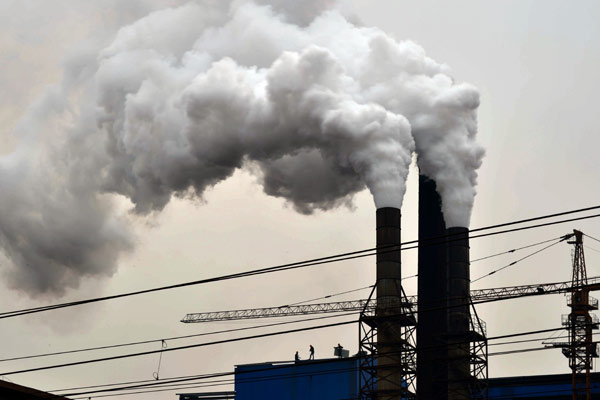 |
|
Smoke is emitted from chimneys at Gengchen Casting Materials Corp in Jinan, Shandong province, as lingering smog shrouds the city. [Photo/Xinhua] |
New binding targets
China's war on pollution began in earnest in 2013, when an action plan was published to tackle air pollution, followed up last year by measures targeting contaminated water.
With the upcoming action plan on soil pollution, the country is taking steps to further raise the general quality of the environment by 2020.
Having promoted agricultural technologies in her village for more than 20 years, Qiu Xinghong, a national legislator, is calling for thorough surveys to be conducted into rural soil pollution, and for systematic efforts to control the deterioration of the land.
"Contamination along some rivers and in farmland has made the soil black and infertile," said the 43-year-old from Jiexi county in Guangdong province, who is deputy head of the county's agricultural technologies promotion center and an NPC deputy.
Because the excessive use of chemical fertilizers and pesticides has contaminated the soil, Qiu expends time and effort every year to show farmers how to apply the correct amount to their land.
In addition, a number of small workshops that produce preserved plums, a local delicacy, and factories that make wires and cables have also discharged untreated sewage directly into local rivers, she said.
"The (provincial, city and county) governments have shut down a lot of polluting factories, but there's still a lot to do with regard to the excessive use of fertilizers and pesticides," she added.
Qiu was not the only deputy at the recent two sessions to call for greater efforts to control soil pollution.
Tang Ming, a CPPCC National Committee member and professor of agriculture at the Northwest Agriculture and Forestry University in Yangling, Shaanxi province, also submitted a proposal calling for tougher controls.
He cited data from the environmental and agriculture ministries that show that up to 2009, heavy-metal contamination of the soil caused reductions in grain yields and resulted in a loss of 2 billion yuan ($307 million), and that industrial wastewater was used to irrigate 1.4 million hectares of farmland, causing further contamination.
"Soil contaminated by heavy-metals poses a further risk to human health via the grain and polluted water," he said.
"It's time for governments to tackle soil pollution in the same way we curb air and water pollution."
